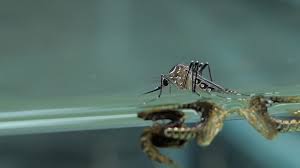Combatting Mosquitoes: Strategies and Importance in 2023

Introduction: The Mosquito Challenge
Mosquitoes are not just a nuisance; they are vectors for some of the world’s most dangerous diseases, including malaria, dengue fever, and Zika virus. As climate change and human activities expand their habitats, understanding and implementing effective mosquito control strategies has become increasingly crucial. In 2023, the fight against mosquitoes has evolved, employing innovative techniques to protect public health.
Current Developments in Mosquito Control
The battle against mosquitoes has seen significant advancements this year, particularly in the development of genetically modified (GM) mosquitoes. One prominent example is the ongoing field trials of GM mosquitoes that are engineered to produce non-viable offspring, thereby reducing the mosquito population over time. The **Oxitec** project in the US has garnered attention for its promising results, reporting up to a 90% reduction in mosquito numbers in targeted areas.
Alongside genetic approaches, public health agencies are increasingly using surveillance and data analytics to predict mosquito breeding patterns. For instance, the **CDC** is utilising remote sensing technology combined with artificial intelligence to map out potential breeding sites based on environmental data. This proactive approach allows communities to target prevention efforts more effectively.
Community Engagement and Education
Community involvement remains a vital aspect of combating mosquitoes. Educational campaigns have been ramped up to inform residents about eliminating standing water and using repellents effectively. Cities like **Los Angeles** have launched initiatives where local volunteers are trained to identify and report mosquito breeding sites, creating a community-based response to the problem.
Conclusion: The Path Ahead
The significance of tackling mosquito populations cannot be overstated, given their role in disease transmission. As we move deeper into 2023, the combination of genetic modification, technological advancements, and community engagement appears to be the most promising path forward. With ongoing research and development, the hope is to achieve not only a reduction in mosquito populations but also a decrease in the incidence of mosquito-borne diseases.
As communities become better informed and equipped to handle mosquito issues, public health outcomes can be enhanced, ultimately leading to safer environments for all.
You may also like

The Eden Project: A Sustainable Hub for Biodiversity

Understanding the Importance of Bear Conservation

Unveiling The Pink Marine: A New Era in Marine Conservation
SEARCH
LAST NEWS
- Remembering Wendy Richard: The Promise to Co-Star Natalie Cassidy
- How Did Anglian Water Achieve an ‘Essentials’ Rating for Mental Health Accessibility?
- Shai Hope Leads West Indies in T20 World Cup Clash Against South Africa
- What We Know About Weston McKennie: Future at Juventus and Past at Leeds
- What We Know About the Upcoming Live Nation Antitrust Trial